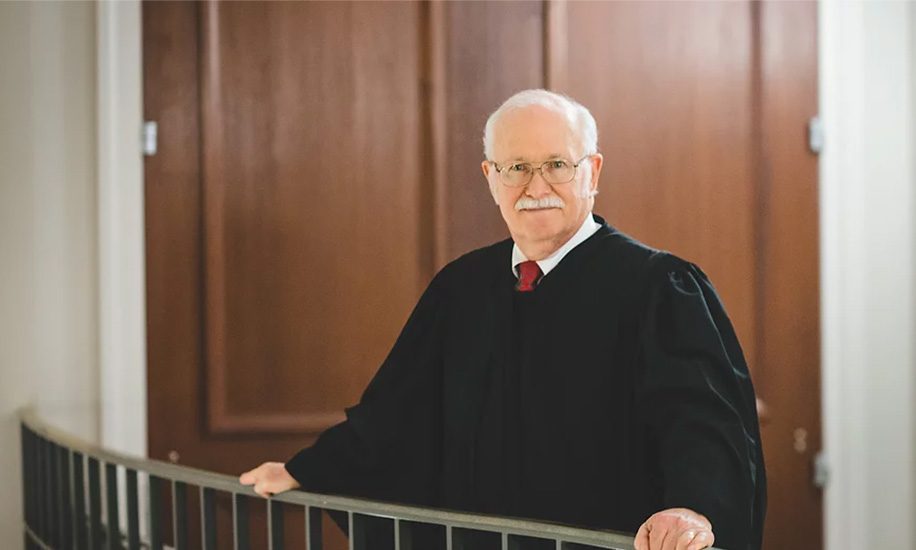Down the ballot from the presidential race are several proposed constitutional amendments, but one of them does not deserve your vote. Statewide Amendment 2 contains a “Trojan horse” that would disrupt the Alabama court system from the top-down and overthrow an important part of the Alabama Constitution.
As the 34th chief justice of the Alabama Supreme Court and an Alabama justice for over 15 years, I strongly urge you to vote “no” on Amendment 2.
Just what would this amendment do? Amendment 2 would strip from the chief justice the important power to appoint his own administrative director of courts (ADC) — the second-in-command of the whole judicial branch of government since the ratification of the Judicial Article in 1973 — and would instead give that power to the eight associates justices of the Supreme Court.
Amendment 2 would give the ADC a long 10-year term and make it much more difficult to remove him or her, instead of serving at the discretion of the chief justice as they do now.
This strange scenario is like Nick Saban and Gus Malzahn having their assistant coaches selected for them by the athletic departments at Alabama and Auburn, and then being told they have to keep those assistant coaches for 10 years! Such a bizarre scheme would totally undermine the ability of the head coach to effectively lead the offense, defense, special teams and all departments of their program — and, if necessary, fire underperforming coaches.
That’s not good leadership in football, and it’s not good government for Alabama. It’s a losing game plan.
The direct relationship and accountability between a head football coach and his assistant coaches are crucial to the successful execution of the head coach’s process and vision.
In the same way, the ADC, under the direct leadership of the chief justice who appoints him, directs the day-to-day administration of Alabama’s Unified Judicial System, which includes all the circuit and district judges, personnel and equipment throughout the state of Alabama.
The ADC is one of the most important positions in the Alabama court system, because the ADC is the linchpin between the chief justice and the trial courts throughout the state. The ADC provides direct accountability and feedback to the chief justice so that he can make necessary and sometimes quick “game-time decisions” that affect all courts.
The ADC is the singular “assistant coach” carrying out the leadership and direction of the judicial “head coach.”
This is exactly how the framers of the Judicial Article of the Alabama Constitution intended it. Article VI, Section 149 makes the chief justice “the administrative head of the judicial system” with the power to appoint the ADC “to assist [the chief justice] with his administrative tasks.”
But Amendment 2 flips the constitutional order and destroys that close accountability between the chief justice and the ADC. Instead, it gives the appointment power to the eight associate justices who, ironically, are not elected with the authority to lead the administration of the judicial branch of government.
To put it in the context of another branch of government, it would be like letting the governor’s cabinet select her chief of staff for her. How strange would it be for the elected head of the executive branch to be unable to choose her top in-house official? And then to be told to work with this person for the rest of her term! This is what Amendment 2 would do to the leadership dynamics of the judicial branch.
Since you did me the great honor of electing me as chief justice two years ago, I have experienced first-hand just how demanding it is to run the day-to-day operations of our entire judicial system. I take seriously that responsibility to lead the court system, as does the ADC.
But my ability to lead this branch, and the ability of future chief justices, would be severely hampered if Amendment 2 passed. Mind you, the chief justice would still be the elected administrative head under the Constitution, but their second-in-command would be picked by a political process and given a longer term of office than even the chief justice’s 6-year term.
Supporters of Amendment 2 claim that letting the associate justices pick the ADC would lead to “stability” and “longevity” in that position. That’s the problem! The amendment would make the ADC nearly unaccountable to the chief justice that he is supposed to assist — and for a cushy 10-year term, regardless of how poorly he is doing the job.
The ADC should carry the football for the chief justice the people have elected, and it is entirely appropriate that both positions follow the desires of the people who elect the head of the branch.
Vote no on Amendment 2 and let the head coach lead the courts as the people have elected him to.


















































